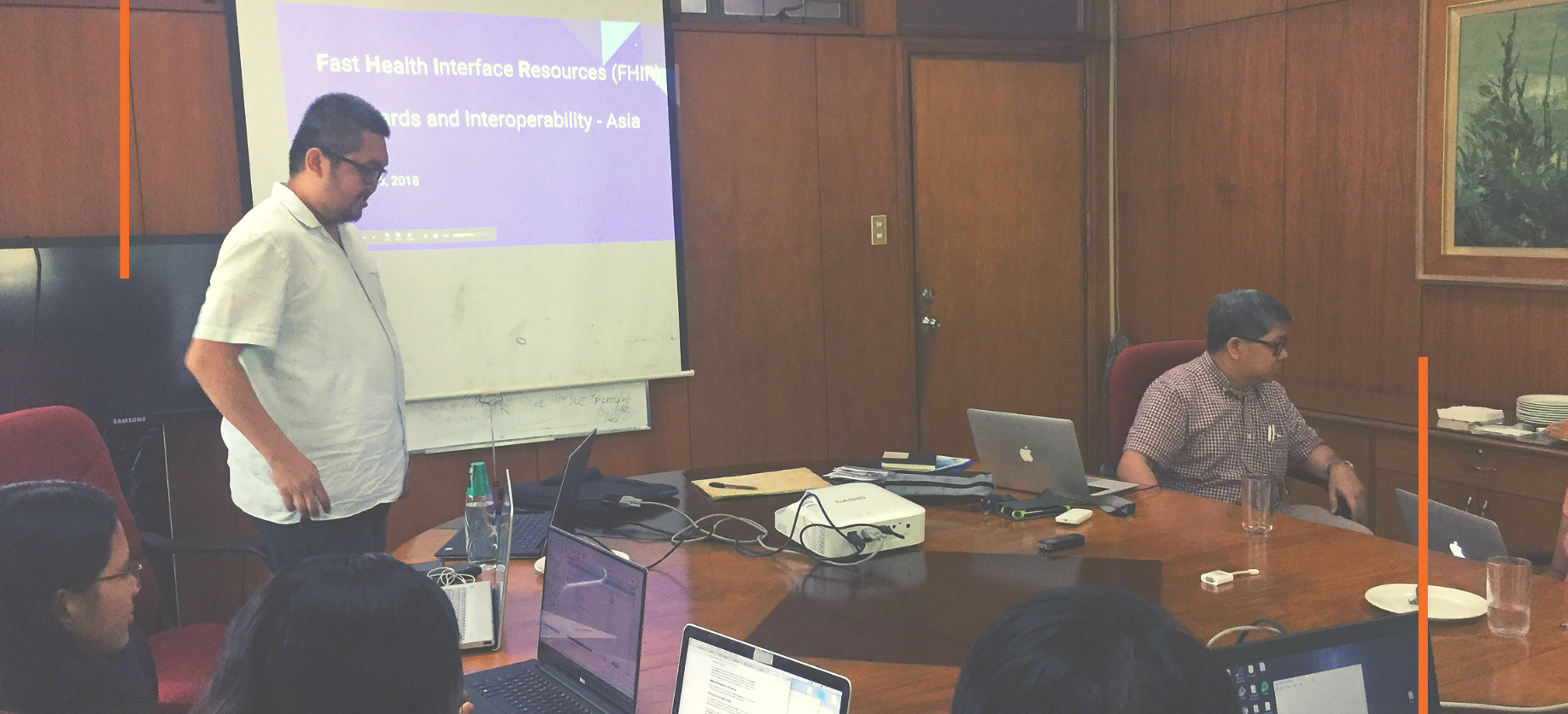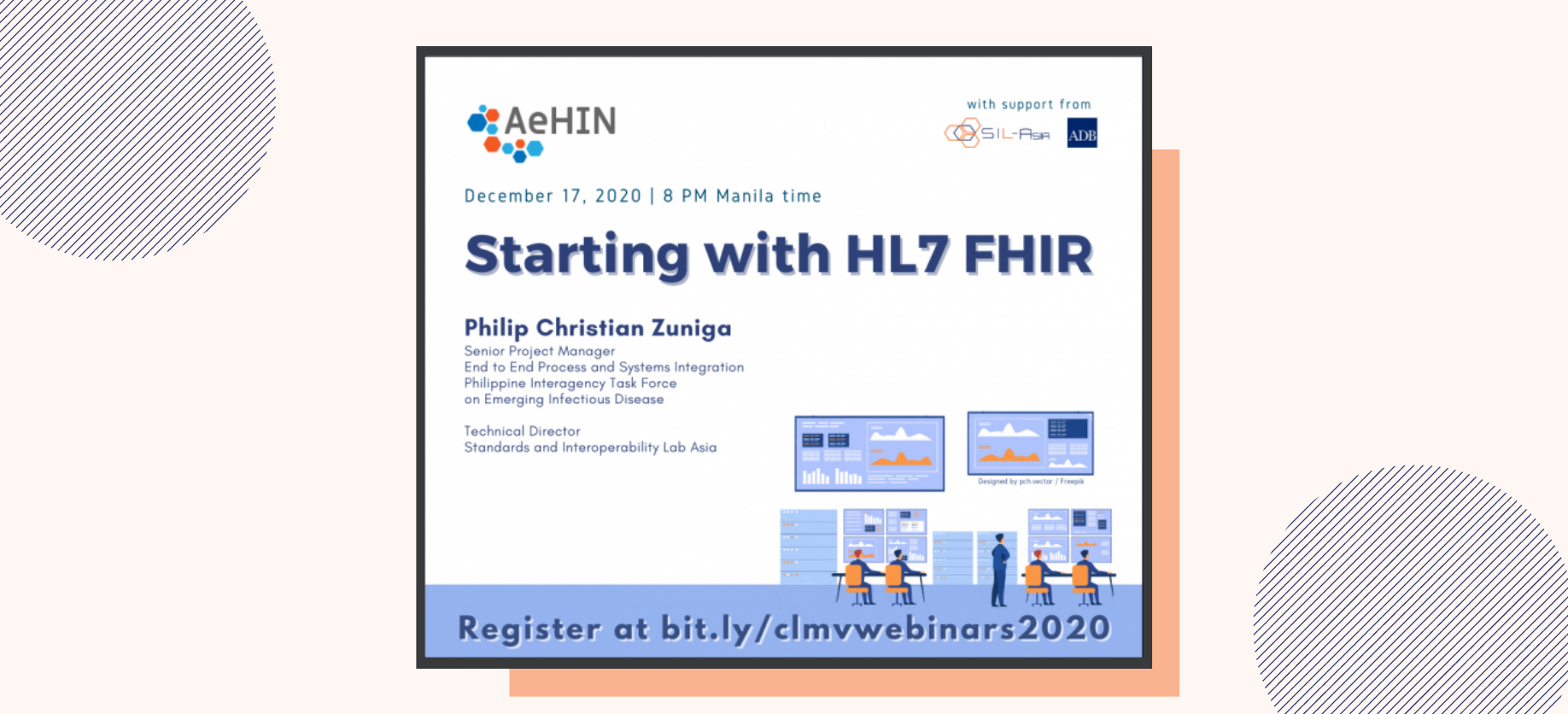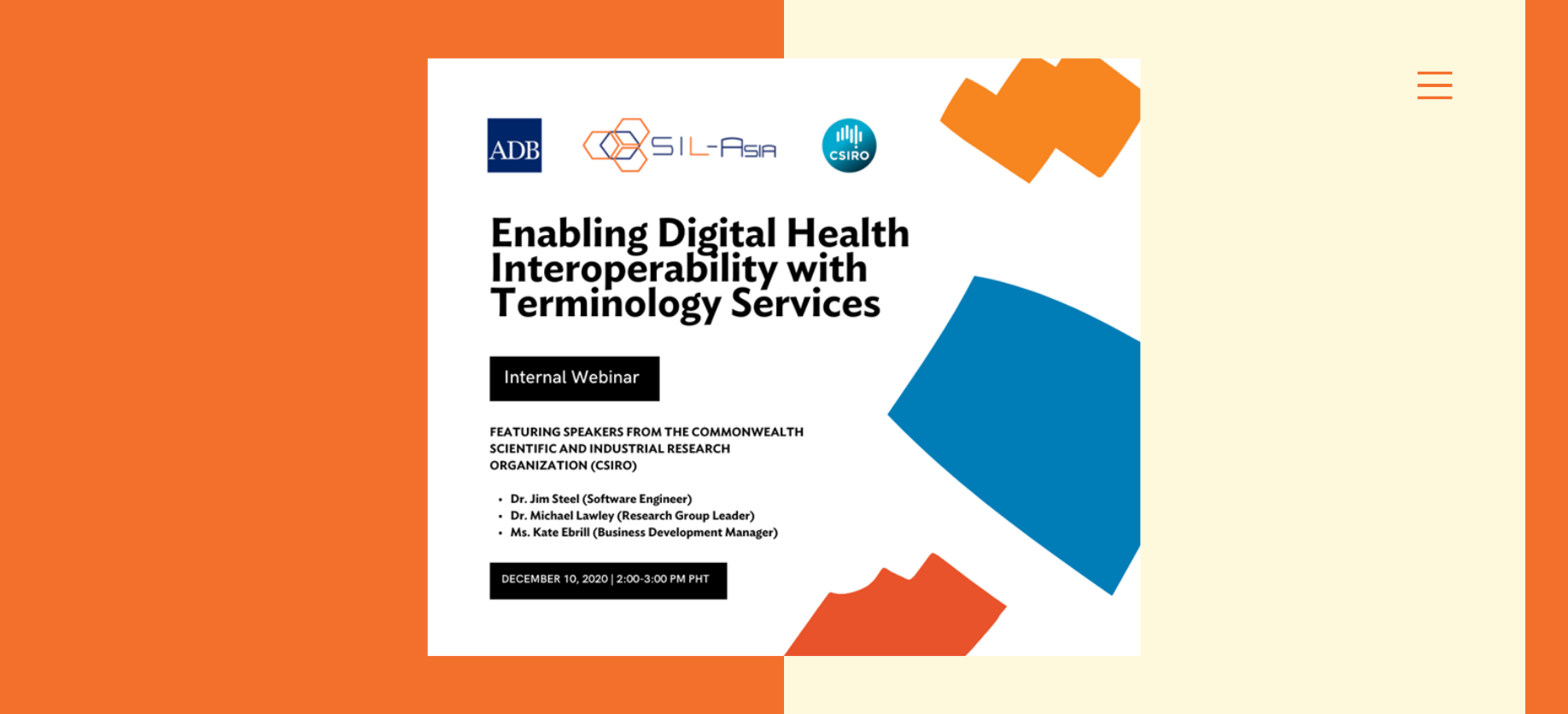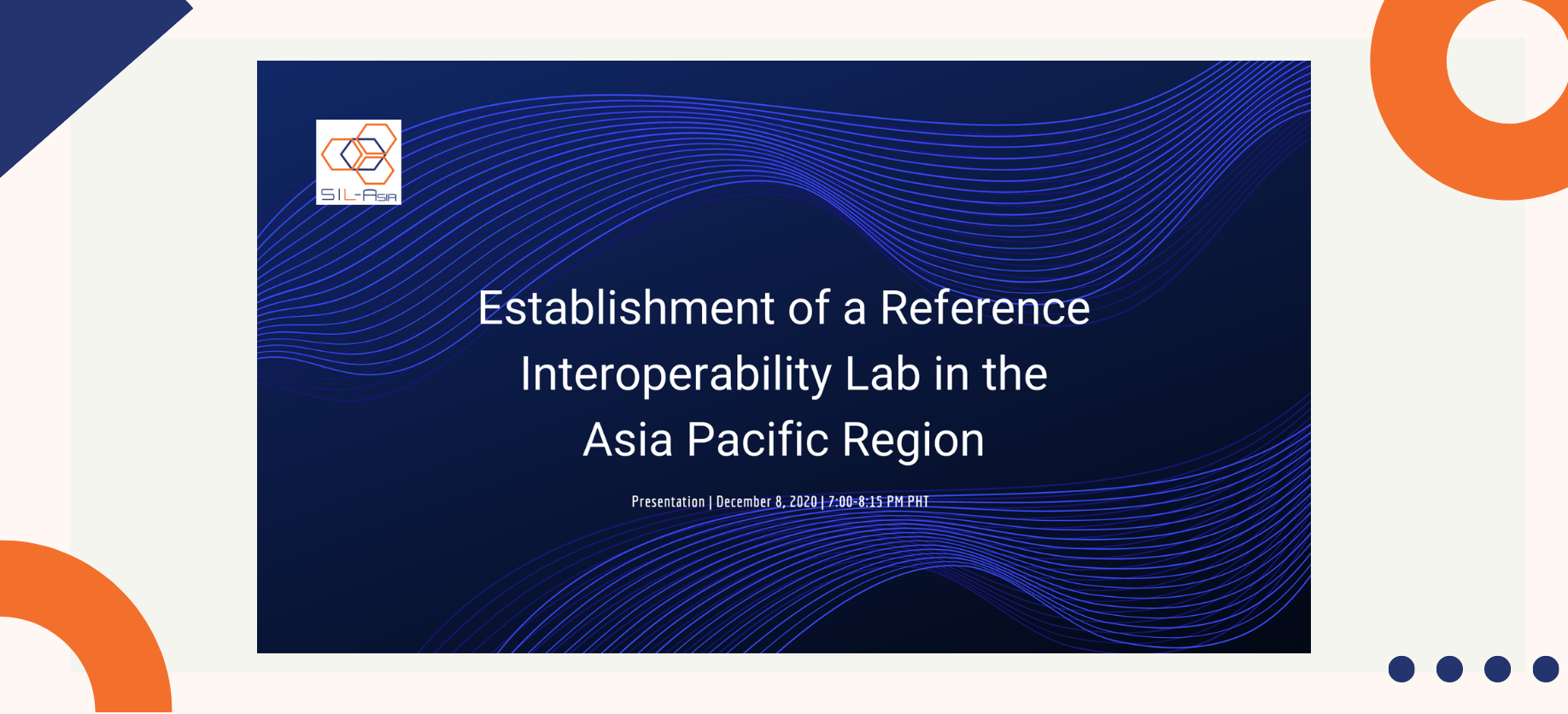QUEZON CITY, Philippines – The Standards and Interoperability Lab – Asia (SIL-Asia) is assisting the eHATID LGU project (eHealth TABLET for Informed Decision Making of LGUs), one of the eHealth and Community Empowerment through Science and Technology (CEST) projects of the Department of Science and Technology-Philippine Council for Health Research and Development (DOST-PCHRD) with Ateneo De Manila University, to comply with the standard specifications of Health Level Seven International – Fast Healthcare Interoperability Resources (HL7-FHIR).
On August 23 2018, SIL-Asia conducted an HL7-FHIR training exclusive to the eHATID LGU project team at the Ateneo de Manila University. The one-day training included an overview of existing health data standards and the Representational State Transfer Application Programming Interface (RESTful APIs), which uses HTTP requests to GET, PUT, POST and DELETE data. The workshop focused on introducing the participants to the concept and principles of HL7-FHIR.
After the workshop, eHATID LGU looks forward to having their technology tested for compliance with HL7-FHIR. HL7-FHIR is regarded as a leading draft standard in healthcare today. Currently, the largest digital health innovation projects in the United States of America (USA) such as Cerner and Epic are implementing HL7-FHIR as a standard. It uses logical and theoretical models to make data exchange between healthcare applications consistent, easy to implement, and rigorous.
For more information, SIL-Asia’s briefer on HL7-FHIR is available here. SIL-Asia’s FHIR server may also be accessed for testing purposes.
The Standards and Interoperability Lab – Asia is a regional health interoperability laboratory powered by the Asia eHealth Information Network (AeHIN) and supported by the Asian Development Bank (ADB) with sponsorship from The People’s Republic of China Poverty Reduction and Regional Cooperation Fund (PRC Fund).
The concept for the Standards and Interoperability Lab – Asia was first conceived at the Regional Interoperability Workshop organized by AeHIN in Manila last August 2015 at the sidelines of the Global Health Research Forum. The regional lab was designed to serve as a template of labs in each country that will later form into the Community of Interoperability Labs (COIL).






